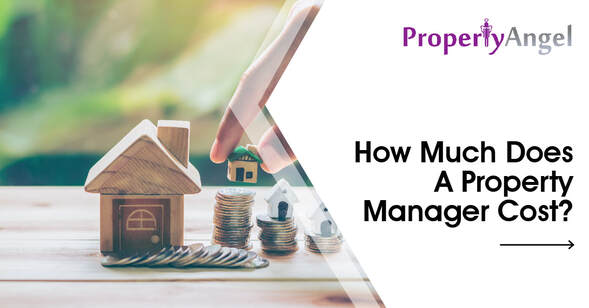|
Today, building a rental property portfolio is synonymous with the best retirement and wealth-building strategies. A well-managed portfolio of rental properties is entirely capable of helping savvy investors achieve financial freedom passively, both now and in the future. However, a passively managed portfolio of rental properties requires a qualified property manager. A truly great property manager will allow investors to continue adding to their portfolio without adding more work for a fee, which begs the question: how much does a property manager cost? How much do property management firms charge for the peace of mind they offer to their clients? Even better, is the cost of property management worth it? The average property management fee ranges from 6% to 12% of the rent collected. However, rental property owners are more interested to know where their money is going rather than the exact property manager cost. If nothing else, the cost of a good property manager is well worth it. At PropertyAngel, our monthly management fee is 9% of the rent collected. There are no yearly or hidden fees to worry about. Let's look at the fees investors can expect to pay throughout a property management contract. Common Property Manager CostsProperty managers have earned a reputation for being the most valuable asset to passive income investors (outside of the properties themselves, of course). Property managers handle everything from running the property to collecting rent, allowing investors to own multiple assets without being bogged down by day-to-day operations. Thus, it's pretty common for today's property management firms to provide a full range of services and fees: Setup Fee A setup fee, also known as an onboarding fee, is exactly what it sounds like: a fee that homeowners must pay to do business with a property manager. A setup fee will represent the cost that homeowners must bear to open an account with a specific manager. Setup fees are typically not included in the monthly collection because it's a one-time fee. However, some managers may charge a setup fee for each additional property added to the portfolio. Leasing Fee A leasing fee is the price landlords must pay to fill a vacancy and is one of the most common property manager costs. A leasing fee, also known as a placement fee, is the cost imposed on homeowners by property managers to fill vacant homes. The leasing fee can vary greatly because of its direct correlation to market demand. That said, one thing's for sure: leasing fees contribute a large portion of the cost of working with a property manager; they are, after all, the most common reason rental property owners seek the services of a manager in the first place. Early Cancellation Fee Most contracts with property management companies will include an early cancellation clause. Homeowners may be penalized for terminating their contract with a manager early, just like how tenants may be charged extra for breaking a lease early. While not every manager includes an early cancellation fee in their contract, it is very common. Therefore, if you notice an early cancellation fee in your contract, don't be worried; it's not a deal breaker. Just do your homework and make sure you hire the right manager for the job. Advertising Fee Depending on the property manager, this fee may already be included in the leasing fee. After all, advertising is one of the biggest expenses in securing tenants. The property manager will use this to fill vacancies. Because advertising costs can differ greatly, the contract must specify how much money will be dedicated to advertising. This property manager cost will increase your home's exposure in almost every platform. Maintenance Fee The maintenance fee covers the cost of keeping contractors and other maintenance service providers on retainer, which means the property manager will have access to their expertise when needed. However, it's important to note that this property manager cost is only used to pay for the services of said workers, not the work itself. The homeowner will be responsible for any additional work. Also, maintenance workers will need to be compensated for the materials and time spent on each individual job, which can vary considerably from project to project. Vacancy Fee Property management fees are generally included in contracts to give managers a cut of the money homeowners earn. However, property managers lose money if the property remains vacant. Thus, some companies charge a vacancy fee. The vacancy fee will charge homeowners for vacant properties so they don't lose money. However, it is the manager's responsibility to keep the home rented, so many would argue that this fee is the most unjust. This fee should raise some red flags for you as a homeowner. At PropertyAngel, you will not be charged a single fee until your property is rented. Reserve Funds Fee The reserve fund fee is more like a bank account with no interest. The reserve fund is basically a pool of money the manager can draw from when the property needs attention. Automatic Payment Fee Non-cash transactions cost money to complete. Thus, most property manager costs include an automatic payment fee in the contract. Therefore, the homeowner has to pay the transaction fee. This fee not only ensures that the homeowner will pay their bill on time each month, but it also reduces overhead for the property manager. Lease Renewal Fee Because of economic fluctuation and the current market environment, rental guidelines and leases are constantly changing. It is not uncommon for rental rates to change at the end of a lease in order to meet the new standards. Thus, after each contract expires, new leases are required. This property manager cost is meant to cover the cost of a new lease when new tenants move in. Late Payment Fee Late payment fees are common provisions in any property management agreement. They state that the homeowner must pay any late or missed payments. The good news is that this fee is completely avoidable with proper budgeting. Eviction Fee Eviction fees can quickly add up, but they are well worth the admission fee. Evictions are upsetting, costly, and stressful, which all investors would rather avoid. Thus, paying an eviction fee to the property manager to handle everything makes perfect sense. Final WordsThe average property manager cost may seem to distract people, but it is important to consider the expense as an investment. Of course, hiring a property manager will cost money, but the initial investment can be recovered easily through the number of services provided. In fact, the right property manager can return more profits than their initial investment. To make your rental portfolio work for you, call us at (91-80-47095974) or (91-7406484455).
1 Comment
Hi I have read a lot from this blog thank you for sharing this information. We Provide all the services like Consumer Service, Real estate, Rental apartments, Property Management, Concierge Services, Apartment Listings, Real estate investment, and Residential Real Estate.
Reply
Leave a Reply. |
Archives
February 2024
Categories |


 RSS Feed
RSS Feed